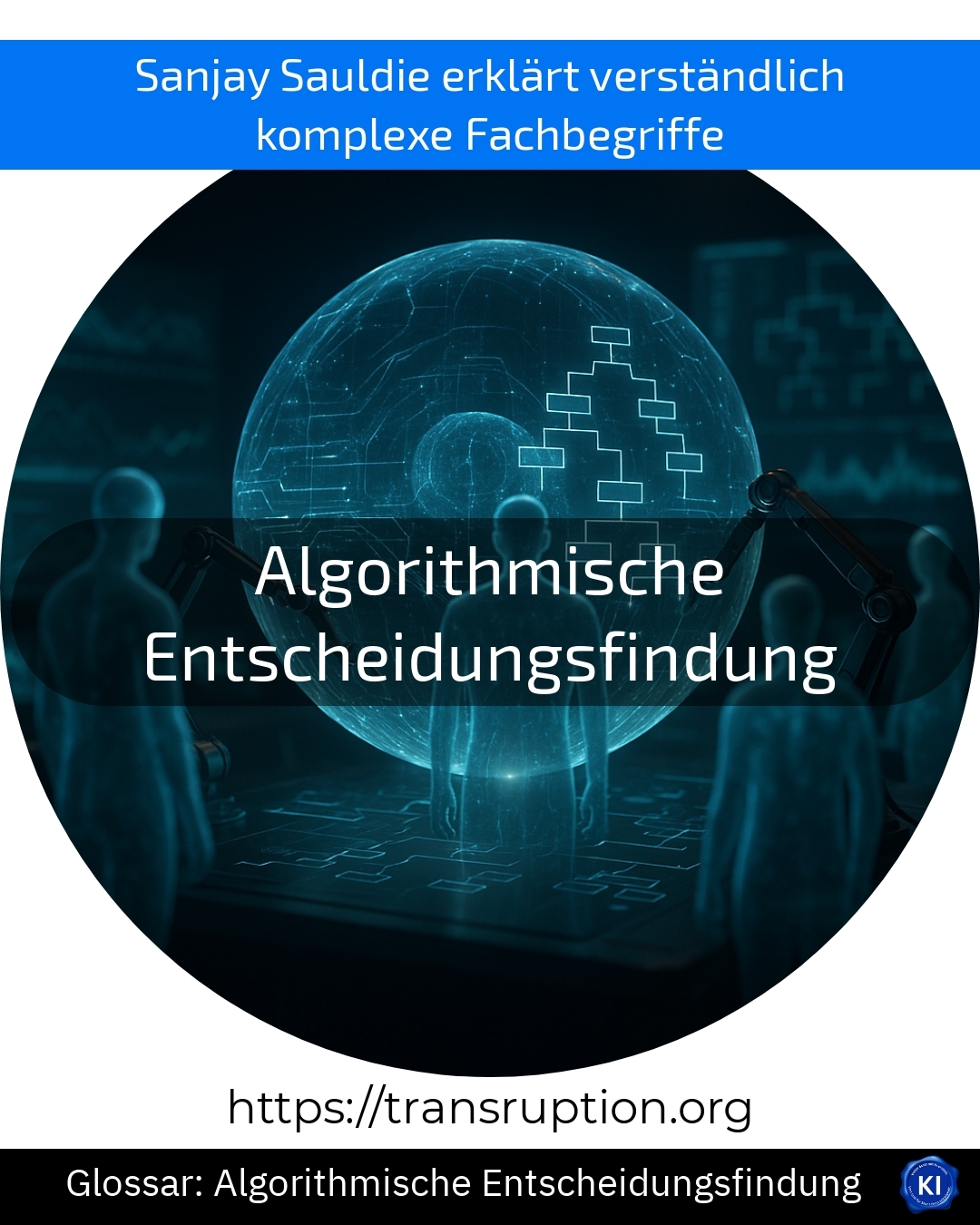Algorithmic decision-making is particularly important in the areas of artificial intelligence, automation and digital transformation. It describes how computers make decisions based on defined rules or through machine learning. Instead of a person making each decision themselves, an algorithm - a kind of "recipe" consisting of many individual steps and instructions - takes on this task.
For example, many companies use algorithmic decision-making to sort applications: A computer automatically checks whether a CV matches the requirements and makes initial selection decisions. Or in online shops, an algorithm recommends items that other customers with similar interests have liked.
The big advantage: decisions can be made much faster, more objectively and often more accurately. At the same time, it is important that these systems are transparent and regularly reviewed so that they remain fair and comprehensible. In this way, algorithmic decision-making helps companies and organisations to efficiently evaluate large amounts of data and derive the appropriate actions from it.















